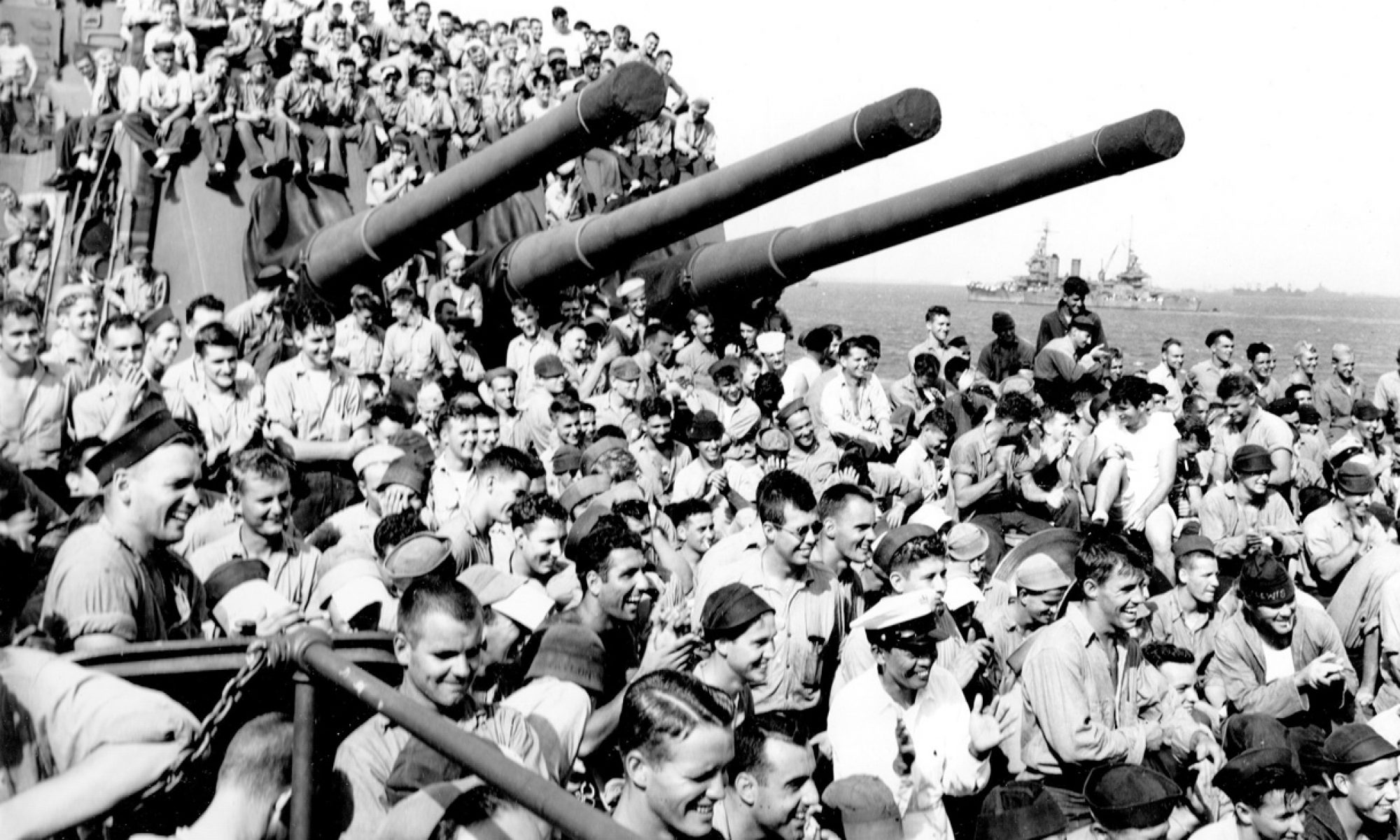1-1-17
As I worked on the Baked Beans books, I came to know a handful of old men who served on the Boston. It all started because a young man emailed me as I was working on the first volume and said his grandfather, Pat Fedele, was a singer on the ship. He was in good health, golfed every day, and he wanted to meet me. Over time, I got to meet and interview six more men as I worked on the next two volumes. Six of the seven were sailors; enlisted men, most of whom were less than twenty years old when they first set foot aboard the brand-new Boston.
The seventh man had a different background . . . a different story. He joined the ship late in the War, reporting aboard as the new Commanding Officer of the Marine Detachment, replacing the reassigned Commander who had been aboard since the ship initially left Boston. I met Norman C. Bayley and spent several hours with him. He told me an incredible story. An Admiral came aboard the ship and asked him to do an incredible job, which Norm agreed to do. That morning, a brand-new bomb was being dropped on the city of Hiroshima and would be followed in a day or two (weather permitting) in another city. His job was to go ashore, accompanied by a Japanese translator (a Navy commander, who was, in Norm’s words, “freshly fished out of the water because we sunk his destroyer”). Together, they would make their way to Hiroshima, and Norm was to document everything they saw and determine by visual clues and dead-reckoning the location of “Ground Zero.” As he recounted their visit to Hiroshima, he paused several times, remembering the horrors of what he saw – burnt corpses, horribly wounded people running and screaming, a once beautiful city incinerated to nothingness . . . Norm struggled to express his own horror – still raw in his mind and soul 70 years later.
Incredibly, after gathering intel (including spending time with Fr. Siemes* in what was left of his monastery outside the city), he and his interpreter drove the truck they had commandeered to Nagasaki. Norm described to me that they encountered pitch black conditions during which so much mud and debris rained down on their truck the wipers no longer worked. It was, as Norm described, ‘Nagasaki raining down on them’ – the black mushroom cloud full of fragments of the people, trees, buildings and animals that were moments earlier the city of Nagasaki.
I left the first meeting with Norm (and his grandson Patrick) shaken and amazed. Norm had his notes, that were later shared with me. I believed him, but the details of his story were confusing and didn’t make sense. After all, the Boston was with the Task Force hundreds of miles north of Hiroshima, preparing to bombard industrial targets on the coast of Honshu.
At the time, I was still learning about the ship and the role she played in the War. There was much I did not know. Over time, and after more visits with Norm, I learned more about the ship and her movements. I also learned more about Norm and his remarkable story of service to his country, starting with Guadalcanal and his subsequent terrible Malaria and ending with his service on the Boston (with a side trip to Hiroshima and Nagasaki, and his next forage onto enemy soil as he led his Boston Marines in the capture of a kamikaze training base at Katsuura in the first days after the Cessation of Hostilities.) After additional research, Norm’s movements from the ship to the bombed cities and back all makes sense and lines up with his stories, despite the fact that after 70 years, some of the details were fuzzy.
His grandson emailed me yesterday. Norm, 99 years young, passed away on Monday. It was a singular honor to get to know this man who was asked to do a dangerous job for his country which put him at serious risk. They had no idea at the time whether the radiation from the bombs would kill him. At the very least, they speculated, the exposure would cause sterilization and cancer. Did I mention that Norm was in full uniform during his “forage” on enemy soil in a stolen Japanese Army truck while the war still raged? (If caught in uniform, it was expected the Japanese would treat Norm as a US Officer, not a spy.) His equipment consisted of a pistol, a notebook and a pencil. While the exposure to radiation did not kill or sterilize him, the abject horrors of what he witnessed stayed with him until the end.
Steve
(* for more info about Fr. Siemes see abomb1.org/hiroshim/intervu1.html)
